How do you teach poetry?
Haven’t a clue – but I can tell you about some really exciting poetry activities you can do with KS2 classes…
READ YOUR CLASS A POEM every morning. Every single morning. I know lots of KS2 teachers that do this and they say the results are manifold.
PUT ON POETRY CONCERTS/ASSEMBLIES – try whole classes performing poems such as Boneyard Rap (Wes Magee), Gran, Can You Rap? (Jack Ouseby), Little Red Rap/I Wanna Be A Star (Tony Mitton), Talking Turkeys (Benjamin Zephaniah), How To Turn Your Teacher Purple (by me..woops.).
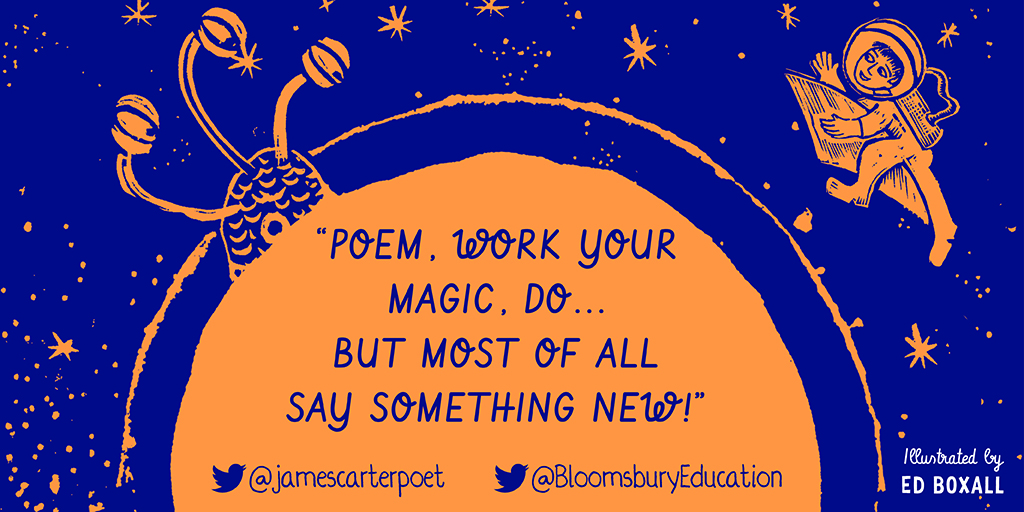 WRITE POEMS AS PART OF YOUR CLASS TOPICS – poetry modules are great, but nothing beats writing poems for a real purpose – creating poems that express a subject matter that a class is enthused about and fully immersed in. Try shape poems (rivers, mountains, volcanoes, planets), kennings ( Ancient Egyptians, Greeks, Romans), haiku ( rainforest creatures, sea creatures), and best of all free verse (memories, real events) – children too easily get stuck in the rhyme rut. And you don’t need to be an expert in all the various forms of poetry – just knowing a few is absolutely fine!
WRITE POEMS AS PART OF YOUR CLASS TOPICS – poetry modules are great, but nothing beats writing poems for a real purpose – creating poems that express a subject matter that a class is enthused about and fully immersed in. Try shape poems (rivers, mountains, volcanoes, planets), kennings ( Ancient Egyptians, Greeks, Romans), haiku ( rainforest creatures, sea creatures), and best of all free verse (memories, real events) – children too easily get stuck in the rhyme rut. And you don’t need to be an expert in all the various forms of poetry – just knowing a few is absolutely fine!
PUBLISH CHILDREN’S POEMS around the school, in the hall, on the school website. And I’ve noticed that children love nothing more than having to take a brand new poem of theirs to show the headteacher!
FIND A RANGE OF POETRY BOOKS – single poet collections and themed anthologies. Set up a poetry corner or poetry book box. Public libraries always have a great selection of contemporary children’s poetry titles – and Oxfam bookshops too are usually good for poetry.
PUT UP POETRY TREES IN THE CLASS/HALL – featuring poems by the children, or the children’s favourite poems.
PHOTOCOPY POEMS and put them all over the school, down the corridors – even in the lo0s!
HAVE A STAFFROOM POETRY READING one lunchtime. Share adult or children’s poems you like.
INVITE A POET IN … why not? A poet will model how to read/perform poems to an 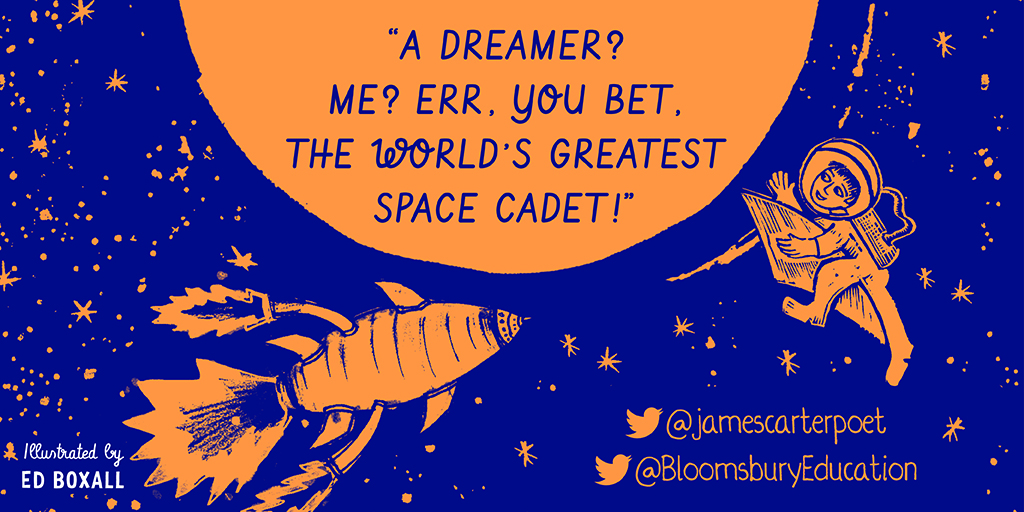 audience, as well as how to run poetry writing workshops in a classroom.
audience, as well as how to run poetry writing workshops in a classroom.
What advice do you have for teachers?
Apart from buying my Bloomsbury teachers’ book Let’s Do Poetry In Primary Schools! as well as multiple class copies of The World’s Greatest Space Cadet (sorry, that was cheeky! ) – and apart from the activities I have recommended earlier, I would say just go for it. And maybe find a teacher in your school that enjoys doing poetry with her/his class. Find out what they do, and what the results have been.
Quite a number of teachers I’ve met in the hundreds of schools I’ve visited over the last few years have said how much poetry has truly revitalised their English teaching, and got the boys in their classes really motivated. What not to like?
And even if you don’t especially like poetry yourself – and you don’t have to – simply try and source some poems and poetry activities that your class could have fun with and be stimulated by. You might be pleasantly surprised by the results. Enjoy!
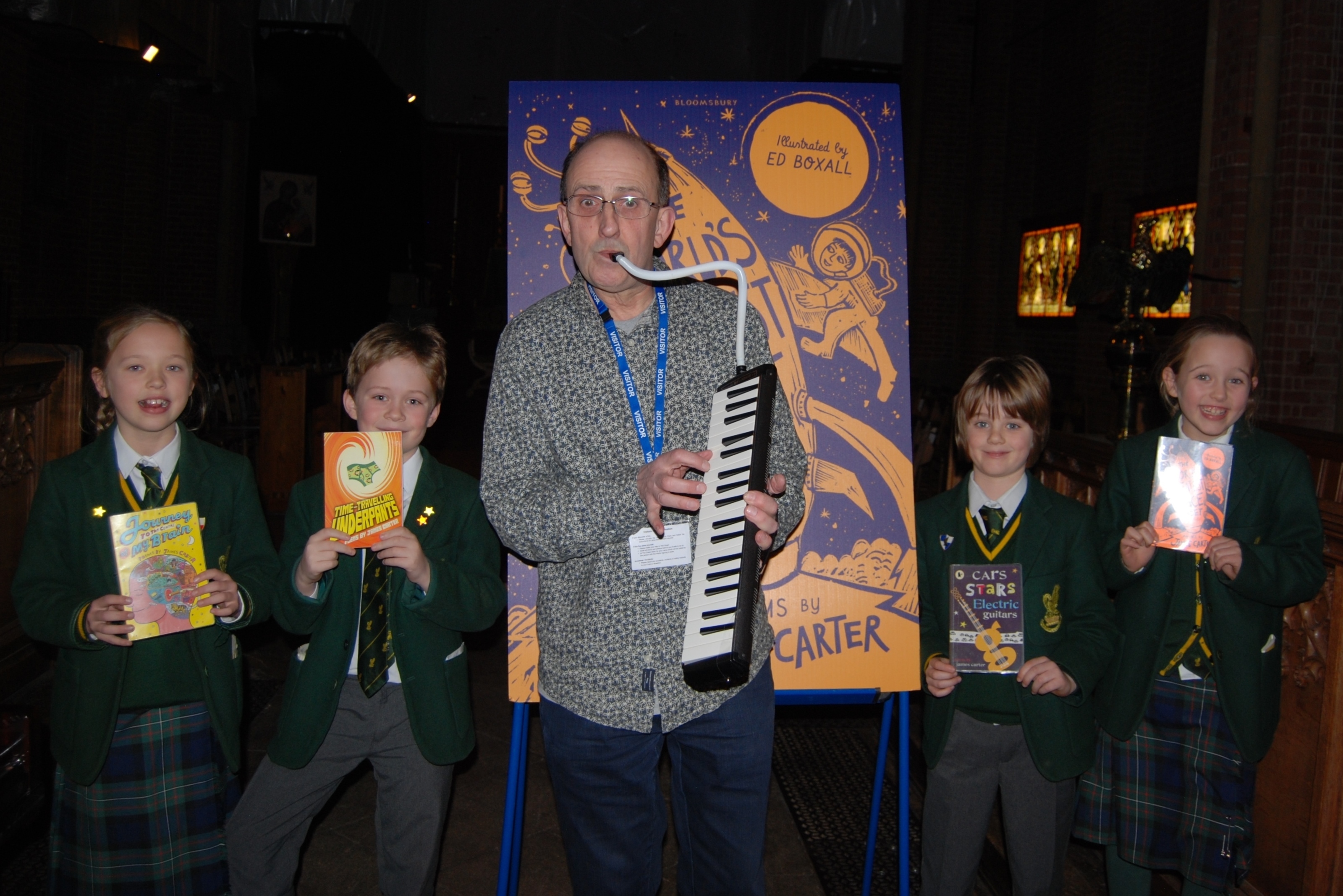 An award-winning children’s poet, James Carter travels all over the cosmos (well, Britain) with his guitar (that’s Keith) to give lively poetry performances and workshops. James once had hair, extremely long hair (honestly), and he played in a really nasty ultra-loud heavy rock band. And, as a lifelong space cadet, James has discovered that poems are the best place to gather all his daydreamy thoughts. What’s more, he believes that daydreaming for ten minutes every day should be compulsory in all schools.
An award-winning children’s poet, James Carter travels all over the cosmos (well, Britain) with his guitar (that’s Keith) to give lively poetry performances and workshops. James once had hair, extremely long hair (honestly), and he played in a really nasty ultra-loud heavy rock band. And, as a lifelong space cadet, James has discovered that poems are the best place to gather all his daydreamy thoughts. What’s more, he believes that daydreaming for ten minutes every day should be compulsory in all schools.
The World’s Greatest Space Cadet by James Carter is available to buy here
Follow James on Twitter @JamesCarterPoet
www.jamescarterpoet.co.uk





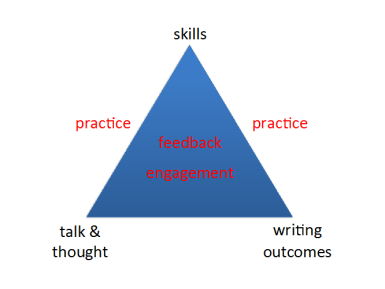
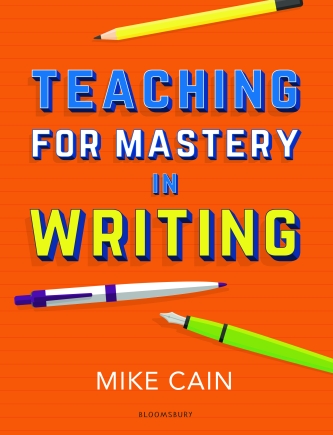
 WRITE POEMS AS PART OF YOUR CLASS TOPICS – poetry modules are great, but nothing beats writing poems for a real purpose – creating poems that express a subject matter that a class is enthused about and fully immersed in. Try shape poems (rivers, mountains, volcanoes, planets), kennings ( Ancient Egyptians, Greeks, Romans), haiku ( rainforest creatures, sea creatures), and best of all free verse (memories, real events) – children too easily get stuck in the rhyme rut. And you don’t need to be an expert in all the various forms of poetry – just knowing a few is absolutely fine!
WRITE POEMS AS PART OF YOUR CLASS TOPICS – poetry modules are great, but nothing beats writing poems for a real purpose – creating poems that express a subject matter that a class is enthused about and fully immersed in. Try shape poems (rivers, mountains, volcanoes, planets), kennings ( Ancient Egyptians, Greeks, Romans), haiku ( rainforest creatures, sea creatures), and best of all free verse (memories, real events) – children too easily get stuck in the rhyme rut. And you don’t need to be an expert in all the various forms of poetry – just knowing a few is absolutely fine! audience, as well as how to run poetry writing workshops in a classroom.
audience, as well as how to run poetry writing workshops in a classroom. An award-winning children’s poet, James Carter travels all over the cosmos (well, Britain) with his guitar (that’s Keith) to give lively poetry performances and workshops. James once had hair, extremely long hair (honestly), and he played in a really nasty ultra-loud heavy rock band. And, as a lifelong space cadet, James has discovered that poems are the best place to gather all his daydreamy thoughts. What’s more, he believes that daydreaming for ten minutes every day should be compulsory in all schools.
An award-winning children’s poet, James Carter travels all over the cosmos (well, Britain) with his guitar (that’s Keith) to give lively poetry performances and workshops. James once had hair, extremely long hair (honestly), and he played in a really nasty ultra-loud heavy rock band. And, as a lifelong space cadet, James has discovered that poems are the best place to gather all his daydreamy thoughts. What’s more, he believes that daydreaming for ten minutes every day should be compulsory in all schools.